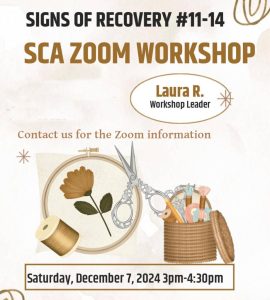Skip to content
Should sexually compulsive behavior be designated a disorder or an addiction? Relatively recently, the World Health Organization (WHO) added compulsive sexual behavior disorder (CSBD) as an official diagnosis. Clinicians have long required clear criteria to establish a diagnosis and engage in a treatment protocol.
For additional information read the article from Psychology Today: https://www.psychologytoday.com/intl/blog/love-and-sex-in-the-digital-age/202411/sexual-addiction-or-sexual-compulsivity-what-to-call-it
A workshop will take place Saturday December 7, 2024
on zoom 3pm – 4:30pm (PST)


